
March 31, 2021
Educopia awarded $245,000 from The Andrew W. Mellon Foundation for the Cita Press project
Educopia Institute is excited to announce an award in the amount of $245,000 from The Andrew W. Mellon Foundation in support of the Cita Press: Getting Fit project. Through this project, Educopia will partner with Cita Press Founder and Art Director, Juliana Castro, to build organizational capacity and a sustainability roadmap for Cita Press (citapress.org). In … Continue reading Educopia awarded $245,000 from The Andrew W. Mellon Foundation for the Cita Press project
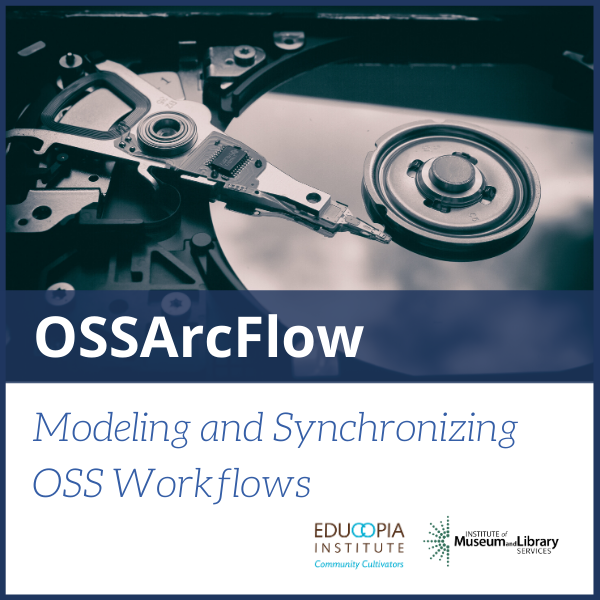
June 15, 2021
Alexandra Chassanoff and Colin Post Receive SAA Preservation Publication Award for “OSSArcFlow Guide”
Alexandra Chassanoff, assistant professor at the School of Library and Information Sciences at North Carolina Central University, and Colin Post, assistant professor in Library and Information Science at the University of North Carolina at Greensboro, are the 2021 recipients of the Preservation Publication Award given by the Society of American Archivists (SAA) for their handbook, … Continue reading Alexandra Chassanoff and Colin Post Receive SAA Preservation Publication Award for “OSSArcFlow Guide”

June 30, 2022
Educopia Partnering with Curtin University and OAPEN to Create a Community Governed OA Book Analytics Service for Publishers
Press Release, Educopia Institute BAD Project Ready for release, June 30, 2022 With more than AUD $1M in support from the Mellon Foundation, we at Educopia are excited to be working with collaborative partners at Curtin University and OAPEN on the Book Analytics Dashboard Project (2022-2025) to support the creation of a community-governed OA … Continue reading Educopia Partnering with Curtin University and OAPEN to Create a Community Governed OA Book Analytics Service for Publishers

March 31, 2021
Position Announcement: Cita Press Project and Editorial Coordinator
The Cita Press: Getting Fit project seeks a Project and Editorial Coordinator to manage daily project activities as well as provide research and editorial assistant to Cita’s Founder and Art Director. The Project and Editorial Coordinator will monitor deadlines, track project metrics, assist with the documentation of project outcomes, update Cita Press website content, coordinate … Continue reading Position Announcement: Cita Press Project and Editorial Coordinator
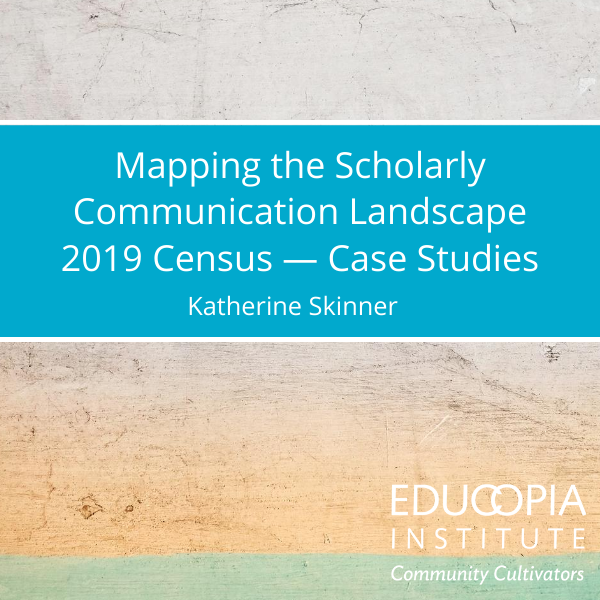
August 24, 2020
2019 Census – Case Studies
These published case studies feature a few of the programs and entities that participated in the “2019 Census of Scholarly Communication Infrastructure Providers,” a Census produced by the “Mapping the Scholarly Communication Infrastructure” project team (Andrew W. Mellon Foundation; Middlebury College, 2018-20). The Census was created to document key components comprising the organizational, business, and … Continue reading 2019 Census – Case Studies
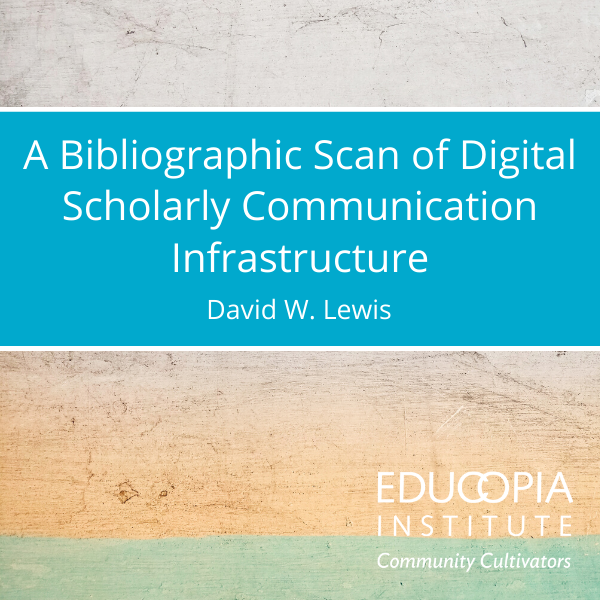
May 18, 2020
A Bibliographic Scan of Digital Scholarly Communication Infrastructure
This Bibliographic Scan by David W. Lewis provides an extensive literature review and overview of today’s digital scholarly communications ecosystem, including information about 206 tools, services, and systems that are instrumental to the publishing and distribution of the scholarly record. The Bibliographic Scan includes 67 commercial and 139 non-profit scholarly communication organizations, programs, and projects … Continue reading A Bibliographic Scan of Digital Scholarly Communication Infrastructure
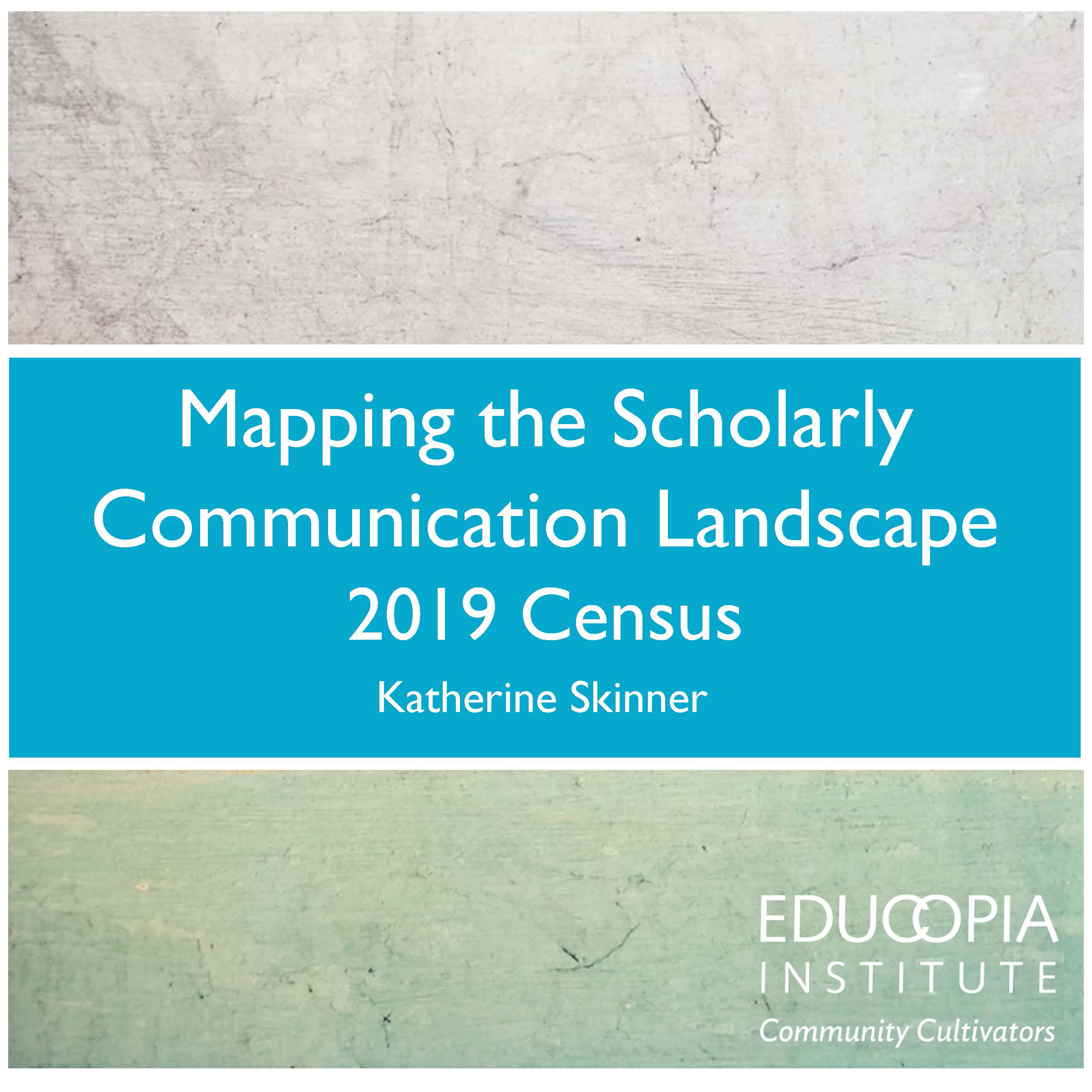
July 23, 2019
Why Are So Many Scholarly Communication Infrastructure Providers Running a Red Queen’s Race?
A few weeks ago, we at Educopia published the first project deliverable for the “Mapping Scholarly Communication Infrastructure” project, which we’re working on with Middlebury College and TrueBearing Consulting. The deliverable is a report and a set of data visualizations based on our deep dive into the organizational and technical infrastructures of “Scholarly Communication Resources,” … Continue reading Why Are So Many Scholarly Communication Infrastructure Providers Running a Red Queen’s Race?

June 20, 2019
Educopia Releases “Mapping the Scholarly Communication Landscape – 2019 Census” Report and Data Visualizations
We are pleased to announce a new report released by Educopia Publications: “Mapping the Scholarly Communication Landscape – 2019 Census.” The paper, authored by Katherine Skinner (Educopia) and edited by David Lewis, Mike Roy, and Melanie Schlosser, is the product of an Andrew W. Mellon Foundation-funded project, “Mapping the Scholarly Communication Infrastructure,” led by Middlebury … Continue reading Educopia Releases “Mapping the Scholarly Communication Landscape – 2019 Census” Report and Data Visualizations

June 20, 2019
Mapping the Scholarly Communication Landscape – 2019 Census
This report documents the design, methods, results, and recommendations of the 2019 Census of Scholarly Communication Infrastructure Providers (SCIP), a Census produced by the “Mapping the Scholarly Communication Infrastructure” project team (Andrew W. Mellon Foundation; Middlebury College, 2018-19). The SCIP Census was created to document key components comprising the organizational, business, and technical apparatuses of … Continue reading Mapping the Scholarly Communication Landscape – 2019 Census
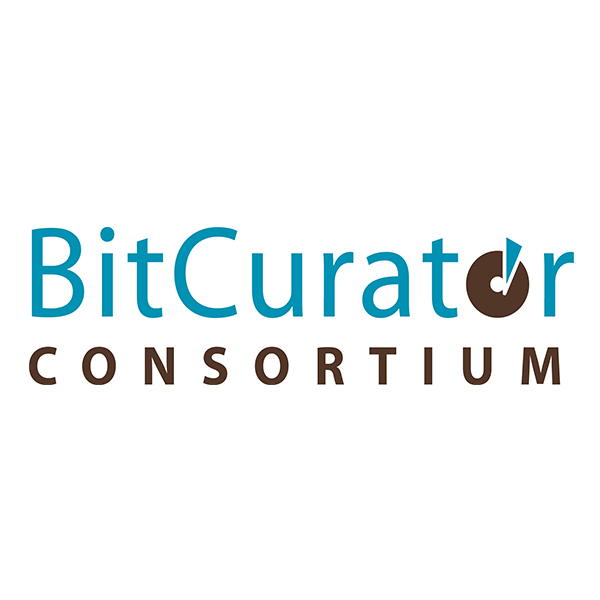
January 22, 2019
Community Validation
After a community has formed and coalesced around a central set of ideas, the next step on the path to maturity is to test the community’s validity. In this crucial “validation” stage, communities often need to strike a careful balance between focusing on continued internal development while simultaneously expanding their external networks of support.
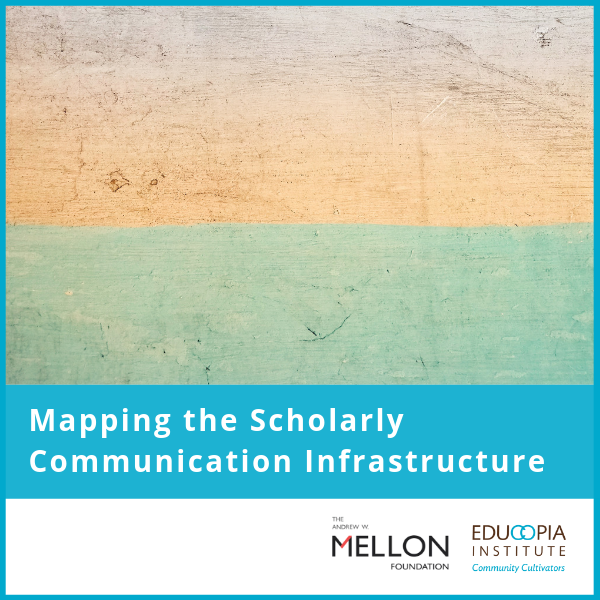
December 19, 2018
Mapping the Scholarly Communication Infrastructure
Mapping Scholarly Communication Infrastructure is an effort to study the current state of digital scholarship infrastructure in the U.S. and to help envision a more modernized and sustainable system that would enhance scholarly communication at colleges, universities, and research libraries across the country. With a grant from The Andrew Mellon Foundation (see press release) from … Continue reading Mapping the Scholarly Communication Infrastructure
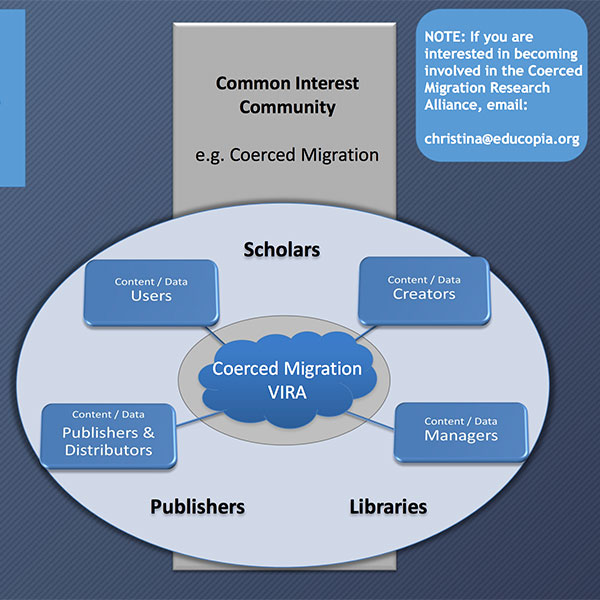
January 12, 2015
The Chrysalis Project White Paper: Opportunities for New Types of Research Alliances
How can we collectively design systems and organizations that will most effectively sustain innovative new varieties of digital scholarship over time? The Chrysalis project undertook a one-year planning effort funded by the Andrew W. Mellon Foundation to study this question by researching models for implementing vertically integrated research alliances (VIRAs) designed to sustain digital scholarship. … Continue reading The Chrysalis Project White Paper: Opportunities for New Types of Research Alliances
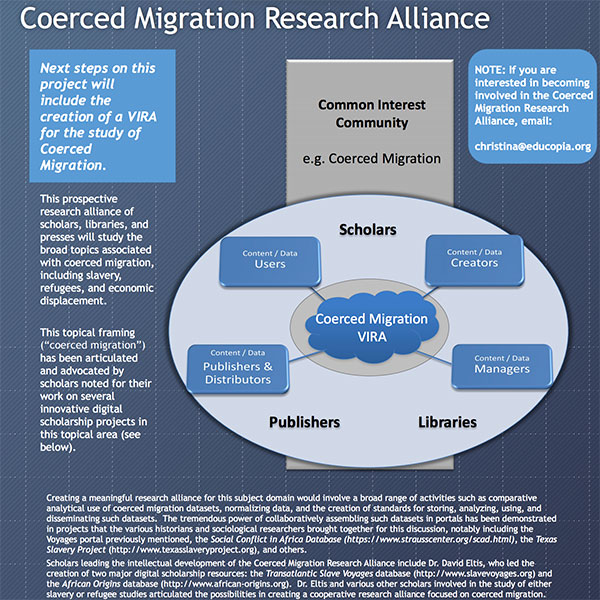
January 12, 2015
The Chrysalis Project White Paper: Opportunities for New Types of Research Alliances
How can we collectively design systems and organizations that will most effectively sustain innovative new varieties of digital scholarship over time? The Chrysalis project undertook a one-year planning effort funded by the Andrew W. Mellon Foundation to study this question by researching models for implementing vertically integrated research alliances (VIRAs) designed to sustain digital scholarship. … Continue reading The Chrysalis Project White Paper: Opportunities for New Types of Research Alliances

January 7, 2015
Hosted and Distributed Services
CurateGear 2015 was an interactive day-long event focused on digital curation tools and methods. Participants saw demonstrations, heard about the latest developments, and discussed application in professional contexts. The event was sponsored by the School of Information and Library Science at the University of North Carolina at Chapel Hill and the Andrew W. Mellon Foundation … Continue reading Hosted and Distributed Services

September 15, 2014
BitCurator Consortium Launches
The Educopia Institute is pleased to announce the launch of the BitCurator Consortium (BCC), a new independent, community-led membership association to support the curation of born- digital materials by libraries, archives, and museums. Members of the BitCurator user community have founded BCC to enhance, promote, and explore this growing area of professional activity. “Managing born-digital … Continue reading BitCurator Consortium Launches
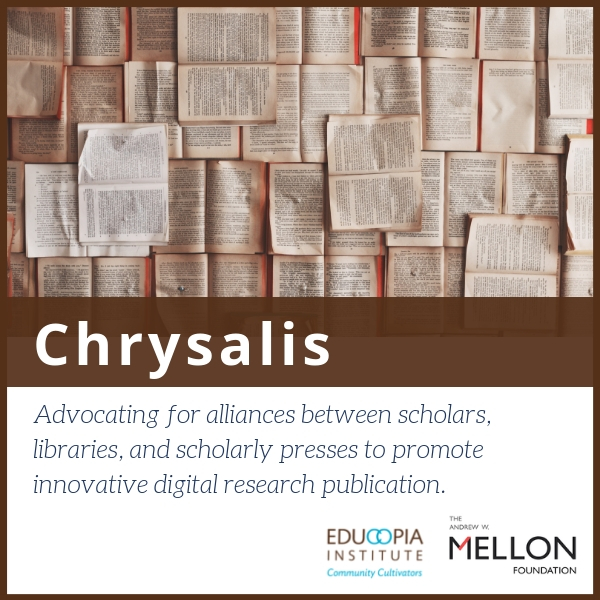
January 10, 2014
Chrysalis: Opportunities for New Types of Research Alliances (subcontract)
The Chrysalis project explored the design and implementation of vertically integrated research alliances (VIRAs) comprising scholars, libraries, and scholarly presses. VIRAs could constitute a chrysalis of sorts for innovative digital research publications. To better understand this model, Educopia Research and the University of North Texas investigated potential revenue streams and sustainability models, including possible redistribution … Continue reading Chrysalis: Opportunities for New Types of Research Alliances (subcontract)
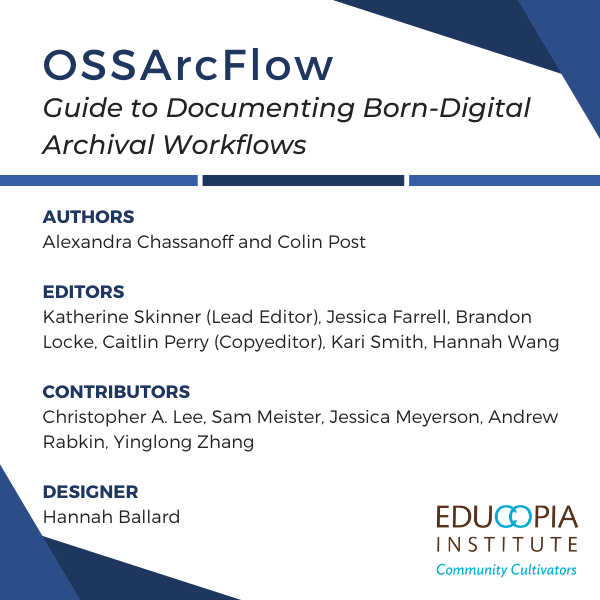
June 23, 2020
OSSArcFlow Guide to Documenting Born-Digital Archival Workflows
The purpose of the Guide to Documenting Born-Digital Archival Workflows is to encourage and assist collecting institutions of all shapes, sizes, and types to begin documenting their born-digital workflows. In our experience, both through the OSSArcFlow project and in consultation with many collecting institutions, the vast majority of today’s born-digital archiving activity is not well … Continue reading OSSArcFlow Guide to Documenting Born-Digital Archival Workflows
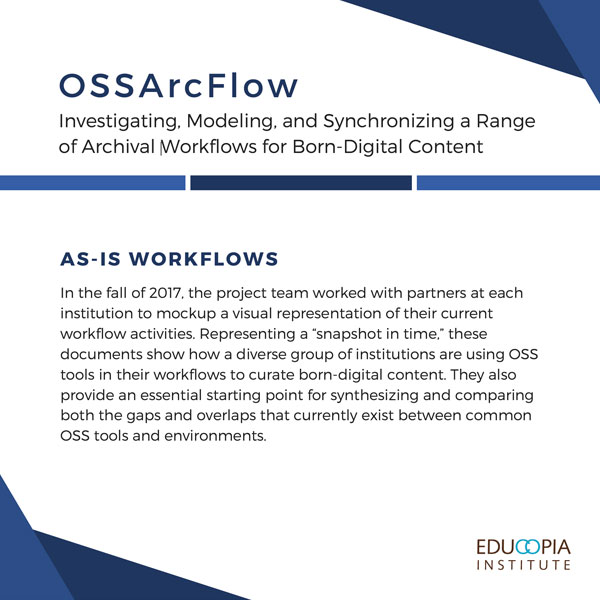
May 18, 2020
OSSArcFlow As-Is Workflows: All Workflows
The Educopia Institute, in collaboration with the University of North Carolina at Chapel Hill School of Information and Library Science (UNC SILS), LYRASIS, and Artefactual, Inc., launched the Open Source Software Archival Workflow (OSSArcFlow) research project in July 2017. This two year project draws together 12 partner institutions from different cultural heritage sectors to investigate, … Continue reading OSSArcFlow As-Is Workflows: All Workflows
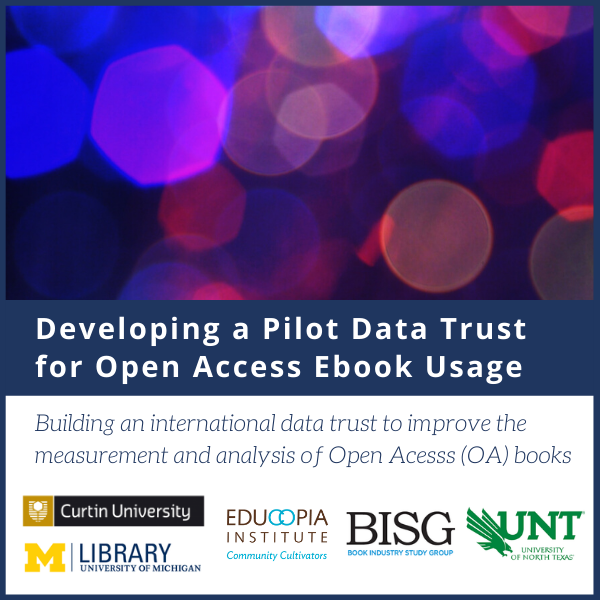
February 20, 2020
Developing a Pilot Data Trust for Open Access Ebook Usage
This two-year project acted upon the recommendations documented within the “Exploring Open Access Ebook Usage” white paper published by the Book Industry Study Group in 2019. The international project team and its advisors developed and tested open infrastructure, policy and governance models to support a diverse, global data trust for usage data on open access … Continue reading Developing a Pilot Data Trust for Open Access Ebook Usage